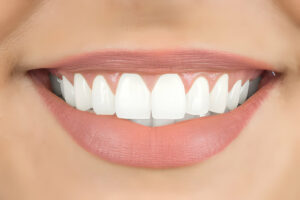Table of Contents
ToggleUnveiling the Power Duo: Diet and Exercise for Weight Loss Success
Shedding unwanted pounds can feel like an uphill battle. Fad diets and intense exercise routines promise quick fixes but often leave us feeling discouraged and frustrated. The truth is that achieving lasting weight loss requires a sustainable approach that combines a healthy diet with regular exercise. Let’s delve into the science behind this powerful duo and explore why it’s the key to unlocking weight loss success.
The Calorie Equation: Burning More Than You Consume
Weight loss boils down to simple math: creating a calorie deficit. Our bodies burn calories throughout the day to fuel our activities, even when we’re at rest. This metabolic rate determines how many calories we need to consume to maintain our current weight. We must expend more calories than we take to lose weight.
This is where diet and exercise come in.
How Diet Creates a Calorie Deficit
A healthy diet helps us achieve a calorie deficit by reducing our overall calorie intake. Think of it as the “intake” side of the calorie equation. Here’s how:
- Portion Control: Consuming smaller portions naturally reduces the number of calories we eat.
- Nutrient-Dense Choices: Filling your plate with fruits, vegetables, and whole grains keeps you feeling fuller for longer, reducing cravings and calorie intake.
- Limiting Processed Foods: Processed foods frequently contain large amounts of added sugars, bad fats, and calories. Reducing these choices aids in calorie management.
How Exercise Burns Calories
Exercise is the “output” side of the calorie equation. Physical activity directly burns calories, helping us create the necessary deficit for weight loss. Here’s how different types of exercise contribute:
- Cardio: During a workout, vigorous exercises like swimming, jogging, and walking burn a lot of calories.
- Strength Training: Gaining muscle makes you burn more calories even when you’re at rest since it raises your resting metabolic rate.
Remember: Both diet and exercise play crucial roles in creating a calorie deficit. While focusing solely on diet can help you lose weight initially, it may not be sustainable in the long run.
Building Muscle Mass: The Long-Term Advantage
Think muscle is just for bodybuilders? Think again! Muscle mass plays a critical role in sustainable weight loss. Here’s why:
- Boosting Metabolism: Muscle tissue burns more calories than fat tissue, even at rest. Incorporating strength training into your routine helps you achieve a higher resting metabolic rate, leading to more efficient calorie burning throughout the day.
- Sustainability: Combining a healthy diet with strength training helps preserve muscle mass while losing weight. This is crucial as crash diets frequently result in muscle loss, which can slow down your metabolism and make it more difficult to lose weight over time.
Beyond the Scale: The Many Benefits of Combining Diet and Exercise
Weight loss is just one of the many benefits of combining a healthy diet with regular exercise. This powerful duo offers a range of advantages for your overall health and well-being:
- Improved Overall Health: A good diet and frequent exercise can lower your chance of developing chronic illnesses like heart disease, type 2 diabetes, and some malignancies.
- Enhanced Energy Levels: Physical activity and a balanced diet boost your energy levels, helping you feel more vibrant and active throughout the day.
- Mental Wellbeing and Mood: Exercise releases endorphins, hormones that have mood-boosting effects, while a healthy diet provides essential nutrients for brain function, leading to improved mental well-being and a sharper mind.
Diet vs. Exercise: A False Choice
Some may wonder: Can you lose weight with just diet or exercise alone?
Can You Lose Weight with Just Diet?
Yes, you can achieve a calorie deficit and lose weight just by following a diet. Still, it can take a lot of work to maintain this strategy. Strict diets can cause a slowed metabolism, food shortages, and muscle loss, which makes it more difficult to maintain weight loss over time.
Do You Need Exercise to Lose Weight While Dieting?
Exercise isn’t mandatory for initial weight loss but offers numerous advantages. Including physical activity alongside a healthy diet helps you lose weight more healthily by:
- Preserving Muscle Mass: As mentioned earlier, exercise, particularly strength training, helps prevent muscle loss commonly associated with dieting.
- Boosting Metabolism: Regular exercise increases your metabolic rate, helping you burn more calories even during rest.
- Building Long-Term Habits: Combining diet and exercise fosters a sustainable lifestyle that promotes healthy weight management and overall well-being.
Finding Your Perfect Fit: Creating a Sustainable Diet and Exercise Plan
Diet:
- To create a customized plan that takes into account your nutritional requirements, preferences, and any current medical issues, speak with a licensed dietitian or nutritionist.
- Give priority to complete, unprocessed foods, including fruits, vegetables, whole grains, lean meats, and healthy fats.
- Learn about portion control and how to make healthy swaps for your favorite indulgences.
Exercise:
- Find activities you enjoy! Whether it’s dancing, swimming, cycling, or team sports, choose something you’ll look forward to doing.
- As your fitness increases, start slowly and progressively increase the duration and intensity of your workouts.
- Try to get in at least 150 minutes a week of aerobic activity at a moderate to high intensity or 75 minutes of activity at a high intensity [1]. To increase muscle mass, remember to perform strength training activities at least twice a week.
- Utilize online resources and fitness apps, or join group exercise classes for added motivation and guidance.
What is the Best Diet and Exercise Combination for You?
A one-size-fits-all strategy does not exist. What works best for you in terms of food and exercise depends on your own needs, tastes, and goals. Some broad guidelines do, nonetheless, apply:
- Focus on a balanced diet: Eat a range of high-nutrient foods from each food group.
- Choose sustainable exercise: Find activities you enjoy and can realistically incorporate into your routine.
- Start gradually: Try to keep everything the same. Introduce new habits incrementally to increase your chances of long-term success.
A Balanced Diet and Home Exercise Plan for Weight Loss
Here’s a sample healthy diet and exercise plan to get you started at home:
Sample Diet Plan:
- Breakfast: Greek yogurt with berries and nuts, oatmeal with chia seeds and fruit
- Lunch: Salad with grilled chicken or fish, lentil soup with whole-wheat bread
- Dinner: Salmon with roasted vegetables, brown rice and stir-fried tofu
- Snacks: Fruits, vegetables with hummus, nuts and seeds
Sample Exercise Plan:
- Monday: 30 minutes of brisk walking
- Wednesday: Strength training workout focusing on major muscle groups (bodyweight exercises or light weights)
- Friday: 30 minutes of biking or swimming
Remember: It’s only a taste. Before beginning any new diet or fitness regimen, make adjustments based on your preferences and speak with a healthcare provider.
The Winning Formula: Combining Diet and Exercise for Lasting Weight Loss
A balanced diet and consistent exercise work in concert to provide a potent synergy that promotes long-term weight loss. This method not only helps you lose weight but also improves your general health, increases your energy, and enhances your well-being. Recall that losing weight is a process rather than a goal. Stay calm, acknowledge your accomplishments, and relish the journey of forming healthful routines for a more toned, more youthful you!
FAQ
How Much Exercise Do I Need with a Weight Loss Diet Plan?
The American College of Sports Medicine (ACSM) advises a minimum of 150 minutes of moderate-intensity aerobic activity or 75 minutes of vigorous-intensity activity per week for weight loss [1]. Combining this with strength training exercises at least twice a week provides optimal results. However, consult your doctor to determine the best exercise program for your individual needs and fitness level.
Additional Tips for Success:
- Stay Hydrated: Water helps with digestion and keeps you feeling full throughout the day.
- Get Enough Sleep: Aim for 7-8 hours of quality sleep each night. Sleep deprivation can disrupt hormones that regulate appetite and metabolism.
- Manage Stress: Ongoing stress might lead to unhealthy eating habits. Look for beneficial stress-reduction techniques, such as yoga, meditation, or outdoor activities.
- Track Your Progress: By monitoring your weight, food intake, and exercise regimen, you can maintain your motivation and adjust your strategy.
Remember, consistency is key. By implementing tiny, sustainable modifications to your food and exercise routine, you can lose weight and enhance your general health and well-being.
Sources
weillcornell.org/news/give-yourself-time-to-ease-back-into-fitness




















